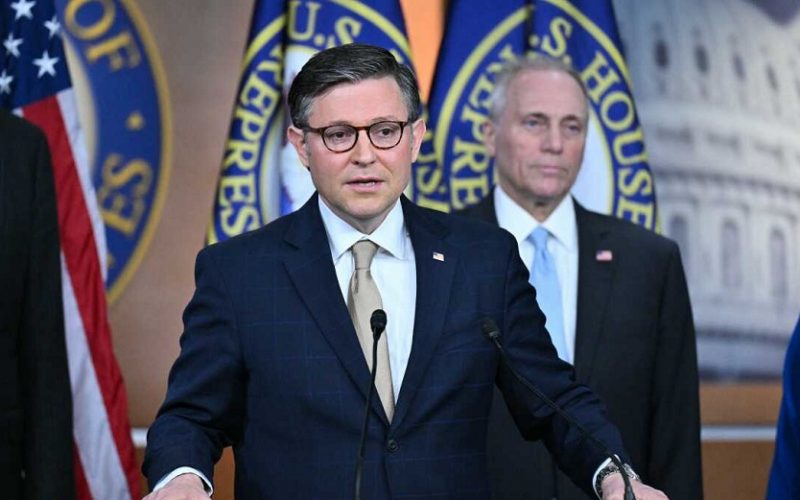Lansing, MI – The House of Representatives on Tuesday passed a critical funding bill aimed at averting a government shutdown by extending funding through September 30, the end of the fiscal year. The measure, known as a continuing resolution (CR), was approved by a narrow margin of 217-213, with only one Democrat, Rep. Jared Golden (D-Maine), joining Republicans in support. On the opposing side, Rep. Thomas Massie (R-Ky.) cast the sole Republican “no” vote.
The legislation includes a series of provisions designed to address the ongoing funding debate, such as an increase in defense spending and cuts to nondefense programs. While the bill provides a temporary solution to keep the government running, it has drawn criticism from both parties for different reasons. Republicans largely supported the bill, hailing it as a victory in the battle for fiscal discipline. In contrast, many Democrats decried the proposed cuts to social programs and other vital services, accusing the bill of undermining public health, agricultural research, and federal law enforcement efforts.
In a statement after the vote, Speaker Mike Johnson (R-La.) called the passage of the bill a significant win for Republicans, emphasizing the importance of funding the government while supporting military readiness. “This was a big vote on the House floor, and Republicans stood together,” Johnson remarked. “We had one Democrat vote with us to do the right thing, and that is to fund the government.”
The bill now heads to the Senate, where its future remains uncertain. While several Senate Democrats have voiced strong opposition to the measure, raising concerns about its deep spending cuts, some members of the Senate are withholding judgment, choosing to assess the political realities of a potential government shutdown against their policy priorities.
Senate Minority Leader Chuck Schumer (D-N.Y.) has approached the vote cautiously, stating, “We’re going to wait to see what the House does first.” The Senate faces a delicate balancing act, as both parties grapple with the threat of a government shutdown and the political fallout that could follow.
The bill’s passage in the House marks the culmination of months of contentious negotiations over fiscal policy. Lawmakers have struggled to reach an agreement on funding for fiscal 2025, with the House facing pressure from hard-line conservatives for more aggressive spending cuts. Despite initial opposition from some members of his own party, Speaker Johnson was able to rally support for the measure, including securing the backing of the House Freedom Caucus, a group traditionally opposed to stopgap funding measures.
In the final days leading up to the vote, former President Donald Trump personally endorsed the CR and worked behind the scenes to sway holdout Republican members. Trump’s influence appeared to be pivotal, as some conservative lawmakers, including Rep. Greg Steube (R-Fla.), acknowledged that voting for the CR went against their instincts but expressed trust in the president’s long-term fiscal agenda.
“This goes against every bone in my body, but I am placing my full trust in the President’s long-term commitment to getting our fiscal house in order,” Rep. Steube wrote on X.
The funding bill also includes provisions such as increased funding for the federal WIC program, pay raises for junior enlisted military personnel, and measures to support air traffic control programs. However, Democrats have raised concerns that the bill severely underfunds critical areas like health research and agricultural services, accusing Republicans of shortchanging essential programs.
D.C. Mayor Muriel Bowser (D) joined the chorus of criticism, pointing out that the bill omits a longstanding provision that allows the District of Columbia to maintain its local budget for fiscal 2025. She warned that the bill could result in a $1 billion cut to the district’s budget, although the omission’s intent remains unclear.
As the measure now heads to the Senate, the clock is ticking. With government funding set to expire on Friday at 11:59 p.m., lawmakers on both sides of the aisle must quickly find common ground to prevent a shutdown. If the Senate fails to pass the bill or negotiate a compromise, the U.S. government faces the prospect of another shutdown—a scenario that could have significant political and economic consequences.
The coming days will be crucial as both chambers work to resolve the latest funding impasse and ensure the government remains operational beyond the end of the week.












